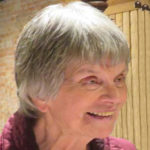By Carol Buchanan, PhD
The best thing fiction writers can do for ourselves is to read fiction. Read any novel you can get your eyeballs on. Read popular novels, novels you wouldn’t write on a bet, novels of all sorts and in as many genres as you can without saying “Yuck” and throwing the book away. (Because we want to stay away from those, don’t we?)
That’s good advice, but I don’t follow it. I read only novels that teach me how to write better novels. It takes me about a page to know if I want to keep going with a book or not.
And I read only fiction grounded in reality. No Sci/Fi, no Horror, no Time Travel, and no Romance. These genres have given us some fine stories and even some great literature, but they are not my cup of tea.
You may have your own aversions to some fiction. Many people hate Westerns. I’m a member of the Western Writers of America. I write historical fiction set in Montana during the Civil War era. Westerns.
The novels I read teach me something every time I read them.
That’s the point of novelists’ reading as voraciously as I do. Learn from the best novelists in the genre you aspire to excel in writing, and in related genres.
Because Dan Stark, the protagonist in my series of four (almost five) novels is an attorney, I read legal thrillers by Scott Turow, John Lescroart, John Grisham, and others. These books have given me glimpses into the mindset of lawyers and how they think. True, they are all set in the late 20th and early 21st centuries (the ever-shifting now), but the law has always been the law throughout our evolving democracy. The jokes about lawyers we smile at now were current as far back as the Civil War (1861-1865).
Don’t get the wrong idea, though. I also read Christian books, and I’m among the legion of Davis Bunn’s admirers.
I got hooked on his novels when I read The Great Divide. From there I read everything I could find with his name on the it, including his Rendezvous with Destiny series and his Marc Royce series, besides stand alone novels such as The Maestro. That novel not only taught me about writing fiction, it taught me how to practice my own instrument. It opened my mind to a different way of thinking about music.
I’ve read a few of his Romance novels (in the Miramar Bay series).
His time travel novel, Burden of Proof, resides permanently among my most admired novels.
Why do I admire Davis Bunn’s books so much? Why do I reread them and learn something more with each reading? Let me count the ways (with apologies to Elizabeth Barrett Browning and her immortal Sonnet 43, “How Do I Love Thee?”). (The following list is not in order of importance.)
First, every book I’ve read by Davis Bunn is enjoyable. They are flat out fun to read. He puts his protagonists through a literary meat grinder, but they survive and even triumph over their adversities. (One book I’ve read is an exception, but I can’t tell you which it is without spoiling the ending. Arguably, that ending could be considered a triumph.)
Second, he writes like a modern, blank-verse poet, but his similes and metaphors slip easily into the mind as integral parts of his sentences and do not interfere with the story’s flow or call attention to themselves.
Third, his research is accurate. Author’s “End Notes” and “Acknowledgements” give full credit to the people he has interviewed and learned from in the course of writing his books. The reader can trust the worlds he builds, such as the world of pop music in The Maestro, to be the way it really is.
Fourth, his characters are individuals. His heroes have faults, as do all humans, and very few of his villains could not be redeemed – eventually. They are not usually redeemed by the end of the story, but the reader senses a possibility for them to be brought to make better choices for their lives. Maybe.
Fifth, the novels are all well structured. I’ve studied novel structure, first as an English major in college, then as a PhD student in English Literature, and for the last 25 years as a working novelist. I’ve also lectured on various theories of novel structure. Part of the pleasure in reading Bunn’s novels is that events happen when they should. He does not delay or lose track of when in the course of the story the main character should be challenged, when he should suffer a grievous setback, or when he should discover the thing that turns his situation from dire to triumphant.
None of these various pleasures call attention to themselves. They integrate seamlessly into every novelist’s aspiration: To tell a great story.
That’s why I admire Davis Bunn’s novels.
They tell great stories.
 Carol Buchanan, PhD, writes historical Westerns set in the Montana gold rush when ruffians ruled and murder was tolerated. Awarded Spur and Spur Finalist from the Western Writers of America, and the “Spirit of Dorothy Johnson” from the Whitefish Library Association, she teaches “Becoming Montana,” a class in early Montana history at Flathead Valley Community College, on Zoom. She is married to Sir Richard, her “tech support.” Her website is https://carol-buchanan.com.
Carol Buchanan, PhD, writes historical Westerns set in the Montana gold rush when ruffians ruled and murder was tolerated. Awarded Spur and Spur Finalist from the Western Writers of America, and the “Spirit of Dorothy Johnson” from the Whitefish Library Association, she teaches “Becoming Montana,” a class in early Montana history at Flathead Valley Community College, on Zoom. She is married to Sir Richard, her “tech support.” Her website is https://carol-buchanan.com.
Carol Buchanan, PhD
